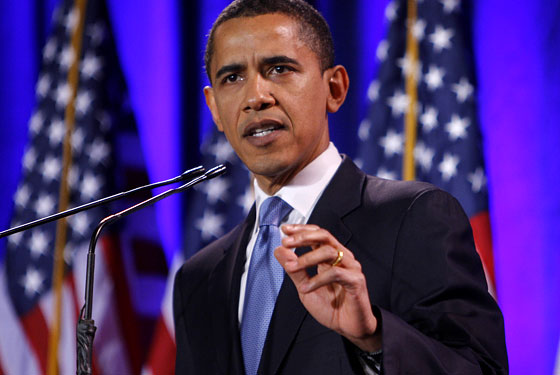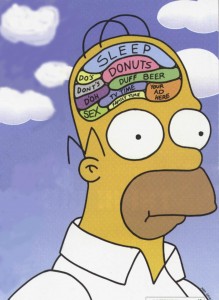Here at Overthinking It, we’ve been talking about a disturbing trend in advertising for several years. We saw several (nine, to be exact) instances of this in last Saturday’s Super Bowl. Here’s an example:
Advertiser: Doritos
http://www.youtube.com/watch?v=T8Jli-2pcgM
Message: “Eating Doritos will get you shocked by a dog.”
Huh? Why is this a good thing? How is this supposed to sell Doritos? Well, we’re not really sure, but we’ve coined a phrase that aptly describes this perplexing phenomenon:
“Bad Things Happen To You When You Use Our Product.”
Let’s explore this trend further with some more examples.
This one’s also from the Super Bowl:
Advertiser: Bud Light
http://www.youtube.com/watch?v=TjPDlAroblI
Message: “Commitment to Bud Light will keep you stuck on a desert island instead of pursuing ways to get back home.”
Sure, it’s a party on the island, but the revelers are clearly depicted as not acting in a responsible, “let’s get back to our families” kind of way. Plus, fresh water is scarce on an island like that. Drinking alcohol will make them more susceptible to dehydration once the party’s over.
Here’s an older (non-Super Bowl) example:
Advertiser: Axe Body Spray
Message: “Using our spray turns you into irresistibly delicious, edible chocolate. Women will consume your chocolatized-flesh like crazed zombies. Say goodbye to your limbs!”
The reasoning behind these kinds of ads seems to be as follows:
- Depict usage of product in TV commercial, probably an expensive one that ran during the Super Bowl
- Show bad things happening to people using the product.
- ???
- Profit!
Doesn’t make sense, right? Yet advertisers keep doing it.
Let’s start with a reasonable explanation for this trend: these commercials all show what happens when a product is so desirable or attractive that it causes logic to be thrown out the window. In this era of marketing over-saturation, advertisers feel the need to depict extreme, over-exaggerated levels of product excellence to get theirs noticed above the rest.
Typical instances of positive exaggeration of a product’s traits yield positive results. Here’s a typical Coke commercial:
Message: “Coke is so great that it turns a misanthropic video game character in a charitable, joy-spreading, spontaneous-song-and-dance-inducing guy.”
But these “Bad Things Happen to You” ads go one step further. Their products are SO INSANELY GREAT that they’ll cause people act irrationally out of extreme desire for the product…
http://www.youtube.com/watch?v=U3d12ekAi14
(Message: “Bud Light is so great it will cause you to discard logic and build a house made of Bud Light, which will start to fall apart as soon as the party starts)
…or the products themselves are SO INSANELY POWERFUL that the effects of using them cause things like the Axe Body Spray video above.
So it seems reasonable to me that increased competition in advertising leads to more extreme depictions of products. But this doesn’t full explain why advertisers think this will appeal to people or make their products more attractive. For that, we need a different explanation. I offer a few possibilities:
1. Advertisers are trying to tap into the previously unexplored masochistic side of the American psyche.
On some level, we like it when bad things happen to us. Great things often resulted from bad things happening to us. The Vietnam War gave us Creedence Clearwater Revival. 9/11 gave us a brief euphoric taste of patriotic national unity (and after that subsided, Team America: World Police). George W. Bush gave us Barack Obama. And so on.

Obama. Better than Doritos.
2. Advertisers are trying to target irony “loving” “hipsters.”
Not likely, but I find it amusing to think that somewhere on Madison Avenue there’s a clueless version of Don Draper who thinks he’s figured out a surefire way to appeal to the youth market: irony. Putting on a trucker hat is a bad thing that happens to hipsters, yet they do it intentionally and seem to like it. Let’s do the same thing with houses made of beer and nachos that cause psycho dogs to shock you. Hipsters love bad beer and dogs–makes perfect sense!

And you thought he couldn't get any cooler.
3. Advertisers are trying to appeal to our love of the irrational and spontaneous.
This I find to be the most compelling explanation. So many of the “Bad Things Happen To You” ads depict people losing all sense of self-control and reason due to the extreme desirability of the product being advertised. The “bad things” that happen in these ads (being consumed by choco-zombies, collapsing Bud Light house, etc) are rarely relatable to everyday life, but the impulsive, Id-driven behaviors that leads to these “bad things” absolutely are. Seeing those behaviors depicted in fiction validates our own similar impulsive drives, and that sense of validation far outweighs anything else going on in the typical American noggin:

The ideal consumer.
OK, so maybe it wasn’t the most shocking discovery to find that advertisers appeal to the Freudian Id, but I still find these ads to be fascinating little psychology experiments. And I’m curious to know what you think.
Readers: What are your favorite “Bad Things Happen To You When You Use Our Product” ads? What makes them effective/not effective? Can anything possibly be cooler than Don Draper in a John Deere hat?
Sound off in the comments!

I wonder how much what actually happens in the commercials matters to consumer use. The only anecdotal evidence I know of this affecting someone’s opinion is my sister, who refused to buy the crunchy m&ms because that was the only m&m character that didn’t want to be eaten. Beyond that, just having people talking about their products, whether positive or just ridiculous, keeps them in the conscious or subconscious mind enough that, when at the store, faced with the beer isle or the many chips, it’s enough for the advertising bucks paid.
The over-the-top ridiculousness I think is just a sign that, as long as you don’t actually say your product is gross or in and of itself bad for you, getting the name into people’s minds is all they really want out of a commercial. I think the ridiculousness of the bad consequences is reassuring, in a way–you know this won’t actually happen–but it still implies the product is really good. In a way, it’s actually harnessing our skepticism.
The new “Stupid” Diesel Jean print ads are definitely a perfect example of this. Most of them depict women not wearing any clothes and/or flashing their genitalia at cameras, or men doing things that will probably land them in jail or at least injure them immensely, and these people are glorified because they are stupid.
http://adhunt.blogspot.com/2010/01/diesel-jeans-be-stupid.html
As terrible the print ads are, the store ads are even worse – there’s a Diesel by my apartment and they’ve covered up all the windows to show catchphrases about how wonderful being stupid is so that you can’t even see the clothes they want you to buy.
Clearly they’re trying to tap into that hipster irony category. You know, “being a responsible adult is so boring so let’s put on these jeans, take off our tops, and squirt ketchup all over our bodies.” Thanks, but no thanks.
The explanation is so simple you couldn’t see it. Everyone believes themselves to be immune from the negative consequences of addiction. When a commercial shows a product that is so great it leads other people into self-destructive actions, we believe we can have it both ways. The product must be great because other people are willing to risk anything to have it, but no, I have the self control to use it responsibly.
It helps that most of these products are not actually addictive.
Thanks for pointing this out. I found the superbowl ads downright depressing this year, so depressing that they ruined my enjoyment of what was really a good football game.
They are probably selling the idea that people love the product so much that using it will cause them to lose control, but even put this way this is a worrying message in the context of the Bud Light ads. Or it could be the adage that any publicity is bad publicity. Or people are really expected to behave like Homer Simpson now.
Someone pointed out to me once that television advertising doesn’t directly sell products, what it sells is stupidity. The idea is that some products (like Bud Light) will only be consumed by really stupid people, so television is used to make people stupider so they will consume more. I found the ads depressing just because I don’t usually watch TV, my exposure comes mainly from wandering into a bar to watch sports, so I had forgotten about this.
In the case of the Doritos dog, the message I got was, “Even dogs like Doritos, so much that they will play tricks on you to get them.” There are many other examples of commercials where people act aggressively in order to get the advertised product.
I agree that the AXE ad was quite bizarre. I kind of see where they’re going with it: “You will be as irresistible as chocolate. And you *know* how much women like chocolate, don’t you?” The translation of this idea, though, was not very effective, because it ended up being so downright bizarre.
I think, like Lisa, that these ads are less about the message in them as they are about Brand Recognition. The advertisers aren’t trying to sell the product, they are trying to get you talking about the advert.
Take this ad for Cadbury’s:
http://www.youtube.com/watch?v=Wy52yueBX_s&
It’s not about the product at all, it’s more about the discussions that follow such a non-sequitur. This may be an indication that consumers are much more sophiscated about advertising techniques these days.
Personally all advertising I put in four categories:
1) “White Noise” – the biggest category for me, this is where I see an add that elicits Zero response. I’d say 90% of ads fall into this, including most “Water Cooler” commercials.
2) “What, What, What” – These are commercials I see and I want to see again. Whether it is the Google Commercial (Which I believe to be one of the best commercials ever – it correctly assumes everyone knows and uses their products and tells a story in a simple way that elicits an emotional response from just words and music. Brilliant!) or the David Letterman (Was that Leno!). Having a marketing degree, I like to see an ad with something that is fresh or new.
3) “Things that make you go Hmm” – I’d say once every few months, I’ll see a commercial that actually make me want that product. Most of the time, it is something I already like but forgot about or there is a new flavor to it (“Chili Cheese Cheetos, hmm. I’ll have to get”). Every now and then I’ll see a movie based on its trailer/commercial (Shutter Island was so bad, Paramount moved it from Oscar contender to February, but with DiCaprio, Scorsese and an interesting Trailer, I want to see it)
4) “Get in the back and make me a Whopper!” – Commercials so bad, I never want to purchase the product again. I can only recall when Burger King had the ‘If we get rid of the Whopper, our slack jawed clientele would be too stupid to order anything else from the menu’ commercials to cite, but there are several things I won’t purchase just because of my disrespect for its consumers in how they market to them.
Just my two cents, for what its worth.
Personally, I’m waiting for the day when an advertising genius can somehow work explosions, hot women, and hot women against a backdrop of multiple explosions into an ad for toilet paper.
The GoDaddy ads featuring Danica Patrick (someone whose attractivness is negated for me because of the fact that the ads insist that she is a hottie, thus making me suspicious about it) are a great example of something that should work, but doesn’t (at least not for me). Guys, you’re with me on the whole “hot girls making out” appeal, right? Now say that you get an ad where this is not only hinted at, but guarenteed when you visit a particular website. This is the greatest thing since sliced bread, isn’t it? Yet for some reason, I feel a little insulted, as if I recognize the crass appeal to my lower instincts (oh, girls making out) for what it is: a shameless plug for a website that might cuase me more grief than pleasure. Sex does sell, but not when it’s omnipresent (at least I feel that way, I’m guessing I might get some disagreement here). It’s simply a case of “too much of a good thing,” as well as the fact that I don’t find Danica all that “hot” in terms of her status as a cultural figure.
The Letteman/Leno ad was basically an uneasy truce along the lines of every attempt to bring peace between Palestine and Israel, but it was unexpected and didn’t wear out its welcome. That one takes the cake for me in what was an underwhelming Super Bowl commerical edition (the game wasn’t half-bad either, come to think of it).
And the Tim Tebow ad? What the hell was that? I’m still not sure if they’re trying to sell us on anti-abortion or tackle football with your parents (neither of which I can support)
On the Doritos ads, first: They were actually fan-made and submitted. Doritos ran a contest, people could go to the website and vote for their favorites, and the top four would be played during the Super Bowl. I can’t remember if any others aired, but the four winners were that dog one, the one referenced in the Podcast with the shuriken-Dorito, the one with the kid telling his mom’s date off, and the one with the guy in the casket.
And those Tebow ads were definitely pro-life- there was a stir/stink beforehand, and Planned Parenthood went so far as to put up its own response online before the Super Bowl (and thus the ads themselves) even aired (officially).
@Bob: That Google commercial made me tear up a bit- granted, I’m a rather easy cry, but I’d agree with you in that it was the one that I felt most affected by.
Part of the appeal of Super Bowl ads nowadays is that we *expect* them to be over-the-top. And the more “out there” they are, the “better” they get rated as. When it comes to the Super Bowl ads, I think the companies are in a competition with each other to make the most memorable commercial possible- so I suppose it has to do with the branding Lisa mentioned up at the top of the comments. And I think this permeates into regular advertising in general, too. The ads that “stay with you” are the ones that are effective, be it positively OR negatively. Context and prior knowledge sometimes has influence (I mean, really, I am SO not buying into Toyota’s ads about how they’re fixing things, given how they just admitted there are MORE problems in MORE cars today- I’d rather avoid a Toyota now, thanks). There is often brand recognition in the commercials themselves, even, and I’d also argue that sometimes the ads that seem the LEAST connected to the product are the most memorable *because* whatever is happening in the ad is so unrelated. “WTF does that have to do with soda?!” and you sit and ponder it for a while, ergo pondering the brand, etc.
I guess I’m kind of rambling, but my point is “out there” sticks in the brain, and the ads where bad things happen seem to me as though they aren’t really meant to show what actually happens. They’re assuming we suspend our disbelief in phenomenal proportions and reveling in that experience, I suppose.
All I know is, the Saints won. And that seriously impairs my ability to overthink anything. In fact, my feet are kinda chilly; I wonder if Hell is starting its freezing-over process now, or are they just waiting for the first of the month after the catalyst event?
The only ads I even remember were the Boost Mobile Shuffle and the Google ad. The rest were just white noise. And I remember thinking “Why did the fricking Census Bureau pay $2.5 million of OUR money for a Superbowl ad?” But I don’t remember the actual content of the ad. Blah.
I think the ads fit entirely in the third category, to some extent, but actually has a rational appeal:
1. I see people enjoying a product despite its ridiculous side-effects.
Therefore, it must have a really high benefit.
2. I know I can enjoy that product without the ridiculous side-effects, because I’m not an idiot who gets fooled by an animal.
3. On the cost/benefit scale, I get the same high benefit without the same high cost. Ergo, it is a worthwhile purchase.
In this sense, it isn’t so much an appeal to the Id as it is an appeal to the rational side that only wants to buy things of high value with a good cost/benefit ratio.